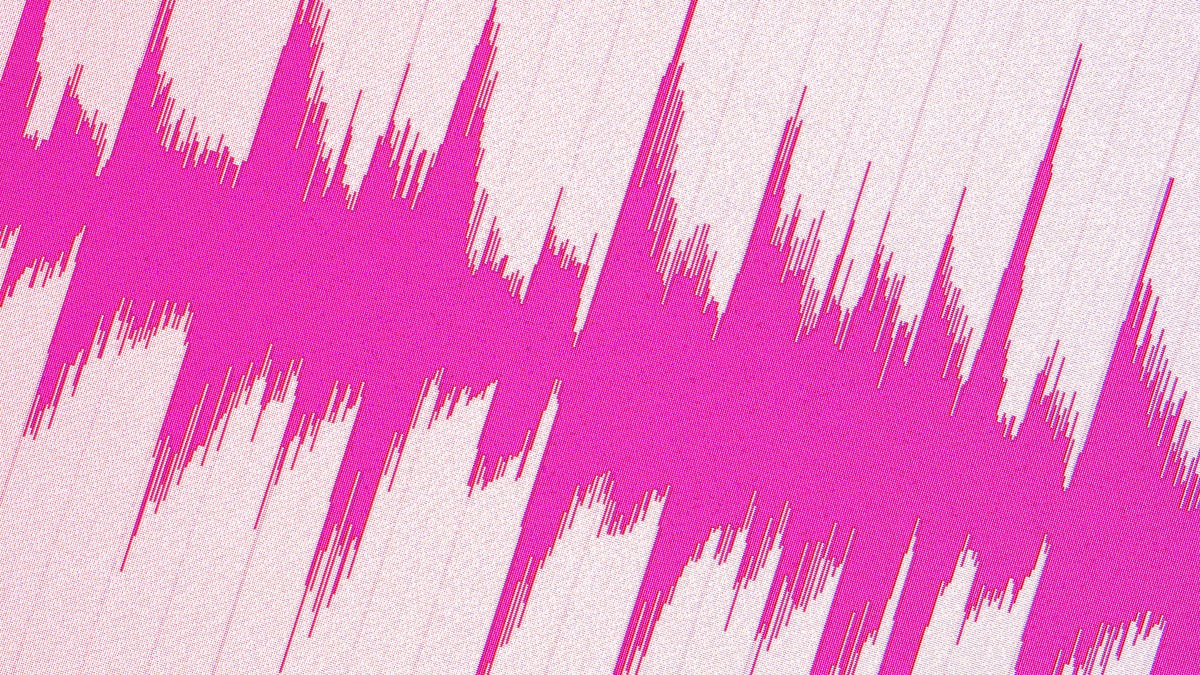Yanny or Laurel leaves scientists as mystified as we are
Ten experts came up with four different explanations.

In the tremendous rush to understand the single greatest topic of conversation since that time nobody knew whether a dress was blue and black or actually white and gold, a number of news organizations (yes, including CNET) reached out to scientists to discover the truth behind whether a robot was saying "Yanny" or "Laurel."
The truth? We still don't quite know -- because those experts came up with at least four different explanations.
But maybe one of those explanations applies to you, so let's break them down.
Update, Wednesday at 12:26 p.m. PT: It's not a robot. It's a person. Here's the surprising origin of Yanny and Laurel.
What do you hear?! Yanny or Laurel pic.twitter.com/jvHhCbMc8I
— Cloe Feldman (@CloeCouture) May 15, 2018
1) The recording is terrible
- Brad Story, a professor of speech, language and hearing sciences at the University of Arizona
- Heather Read, a sound perception and sensory neuroscience researcher at the University of Connecticut
- Britt Yazel, a researcher at the UC Davis Center for Mind and Brain
- Lars Riecke, an assistant professor of audition and cognitive neuroscience at Maastricht University
- Bharath Chandrasekaran, a professor in the department of communications sciences and disorders at the University of Texas
Speaking to CNET, PopSci and The Verge, several scholars agree: The recording is kind of crummy and ambiguous, to the point where you can theoretically hear different sounds depending on whether the low frequencies or high frequencies are amplified in the audio recording. You can play around with the pitch yourself to see how the audio can be bent toward Laurel or Yanny.
"The low quality recording creates enough ambiguity in the acoustic feature that some listeners may be led toward the 'yanny' perception," Story told PopSci. "With a high-quality recording, and if all listeners were listening with the same device, there may not be any confusion."
But that doesn't necessarily explain why someone would hear the lower or higher frequencies. Next!
2) Your speakers/headphones are terrible
- Rory Turnbull, an assistant professor of linguistics at the University of Hawaii at Mānoa
- Lars Riecke, an assistant professor of audition and cognitive neuroscience at Maastricht University
- Dana Boebinger, a PhD student at Harvard and MIT studying the neural basis of auditory perception
- Matt Mikkelsen, a sound and audio engineer with Hayloft Audio
It's pretty simple. Crappy speakers aren't great at producing both quality bass and treble. They often steer toward one or the other -- so if you're listening on a (normal) phone, or via a pair of crummy laptop speakers or cheap earbuds, you might hear something different than with a quality sound system.
6/7 But the main reason (I suspect) people hear this differently is bc different headphones and speakers filter the frequencies of the sound in different ways. Cheaper/worse speakers (e.g. your earbuds) filter out low frequencies, while better speakers can handle them.
— Dana Boebinger (@dlboebinger) May 15, 2018
No, we're not saying that just because headphone and speaker reviews help pay the bills around here.
3) Your ears are different
- Howard Nusbaum, a psychologict who studies speech science at the University of Chicago
- Heather Read, a sound perception and sensory neuroscience researcher at the University of Connecticut
- Lars Riecke, an assistant professor of audition and cognitive neuroscience at Maastricht University
- Dana Boebinger, a PhD student at Harvard and MIT studying the neural basis of auditory perception
Maybe you've lost some of your hearing, or maybe your ears are just shaped differently?
"If I cut your ears off and put someone else's on your head, sounds would sound different," Nusbaum told Gizmodo, explaining that differently shaped ears focus sounds differently. You might actually hear different sounds than the person next to you.
"Older adults tend to start losing their hearing at the higher frequency ranges, which could explain why Riecke could only hear Laurel, but his eight-year-old daughter could hear Yanny," reports The Verge.
4) It's all (or at least partially) in your head
- Nina Kraus, director of the Auditory Neuroscience Laboratory at Northwestern University
- Bharath Chandrasekaran, a professor in the department of communications sciences and disorders at the University of Texas
- Rory Turnbull, an assistant professor of linguistics at the University of Hawaii at Mānoa
- Matt Mikkelsen, a sound and audio engineer with Hayloft Audio
"The way you hear sound is influenced by your life in sound -- what you know about sound," Kraus tells CNET. Essentially, if you've been trained to hear something, it impacts what you think you hear, even if the actual sound is different.
Chandrasekaran told The Verge that because the original recording is ambiguous -- it's terrible, remember? -- your brain needs to fill what it thinks you should hear. Kind of like an optical illusion, but with audio.
Turnbull tweeted that some people tend to fill in those audio gaps using their brain, but others may not. That could account for some people hearing "Laurel" and others "Yanny" -- some people may be more susceptible to this particular illusion than others.
Anyway, that's all I have to say on that. Signal processing and acoustic phonetics are cool, but to get the whole story we have to think about psychoacoustics. Btw I totally hear "Laurel" fwiw. /fin
— Rory Turnbull (@_roryturnbull) May 15, 2018
And Mikkelsen told Gizmodo that your background might impact what you hear too -- that folks from the city, used to loud noises, might expect to hear different sound than people from the country.
In conclusion
Different people hear different things, and there are a lot of reasons why that could be. Hopefully you've now got an idea of those different reasons. It might make for some scintillating dinner conversations.
CNET's Abrar Al-Heeti contributed to this story.

